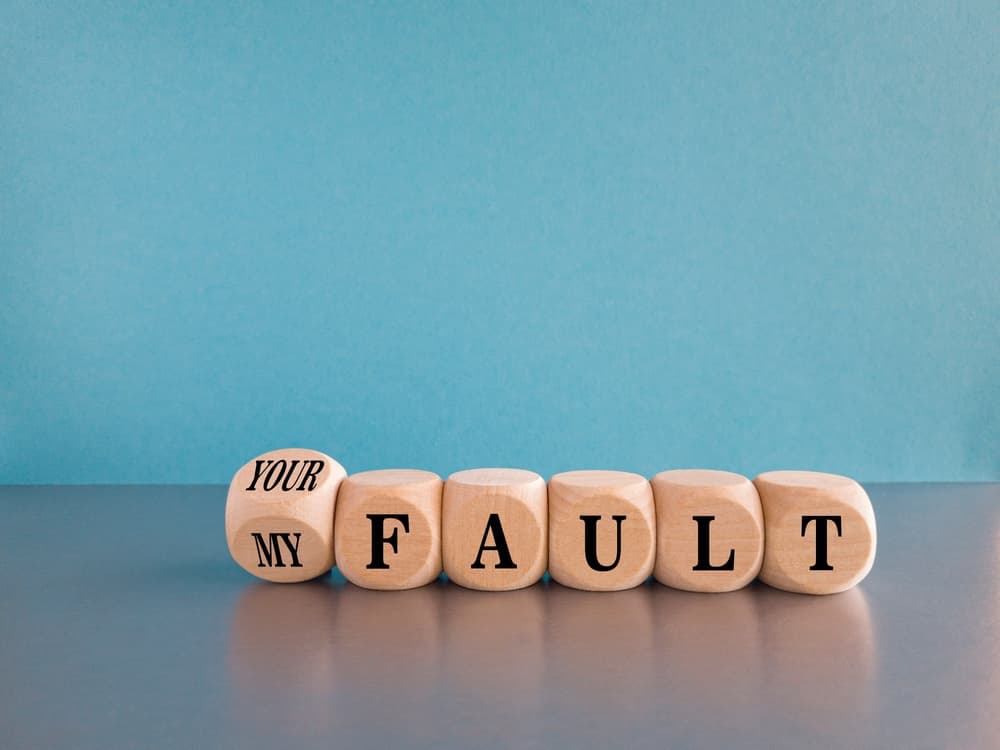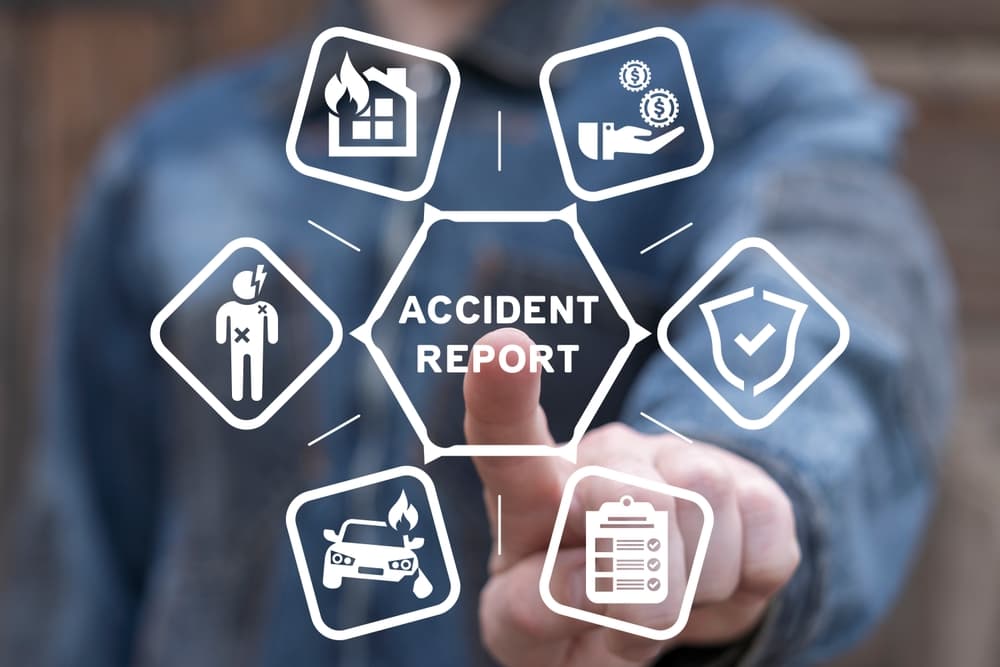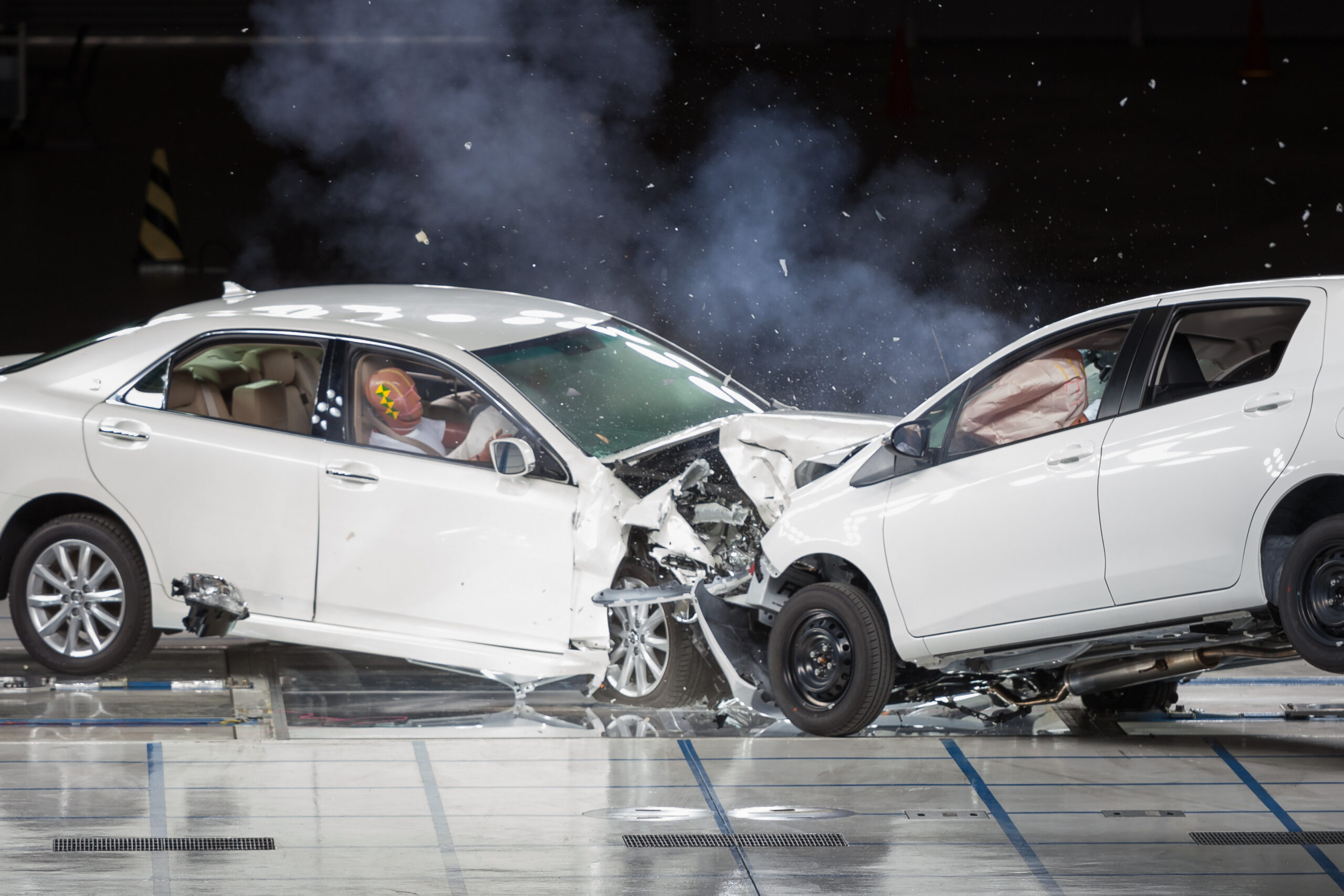 If that happened in your case and the police issued the other driver a citation for speeding in violation of VC 22350, that citation may be very important to you. When the driver who hit you violated the law and the law in question was something designed to avoid the kind of harm you suffered then that violation tips things in your favor.
Say, for example, the driver who hit you was cited for violating VC 22350, and you received no citation. VC 22350 is a statute that exists to prevent vehicle accidents in bad weather or other bad conditions. Proof that the other driver violated VC 22350, and caused harm to you as a result of a bad weather auto accident, creates the presumption that the other driver's conduct was negligent, thereby allowing you to bypass certain proof requirements that normally would exist in a negligence case without the presumption.
The law still allows the other driver to try to rebut the presumption, but the presumption's presence gives you a leg up by allowing you to bypass having to prove that the other driver acted unreasonably.
Whether your auto accident injury case involved terrible weather and road conditions or perfect conditions, an experienced legal advocate can make a huge difference. The right legal team can do critical work in amassing all of the proof you need, from traffic citations to eyewitness accounts to medical records and more.
Contact experienced San Mateo auto accident attorneys at Galine, Frye, Fitting & Frangos, LLP is here to assist you diligently at every phase in the process. Contact our helpful attorneys at 650-345-8484 or through our website.
If that happened in your case and the police issued the other driver a citation for speeding in violation of VC 22350, that citation may be very important to you. When the driver who hit you violated the law and the law in question was something designed to avoid the kind of harm you suffered then that violation tips things in your favor.
Say, for example, the driver who hit you was cited for violating VC 22350, and you received no citation. VC 22350 is a statute that exists to prevent vehicle accidents in bad weather or other bad conditions. Proof that the other driver violated VC 22350, and caused harm to you as a result of a bad weather auto accident, creates the presumption that the other driver's conduct was negligent, thereby allowing you to bypass certain proof requirements that normally would exist in a negligence case without the presumption.
The law still allows the other driver to try to rebut the presumption, but the presumption's presence gives you a leg up by allowing you to bypass having to prove that the other driver acted unreasonably.
Whether your auto accident injury case involved terrible weather and road conditions or perfect conditions, an experienced legal advocate can make a huge difference. The right legal team can do critical work in amassing all of the proof you need, from traffic citations to eyewitness accounts to medical records and more.
Contact experienced San Mateo auto accident attorneys at Galine, Frye, Fitting & Frangos, LLP is here to assist you diligently at every phase in the process. Contact our helpful attorneys at 650-345-8484 or through our website.
Inclement Weather and its Impact on Your California Auto Accident Injury Case
According to statistics from the federal government, the most common type of bad-weather vehicle accident involves rainy weather and wet road surfaces. Another common culprit, according to the numbers, is fog, something to which we are no strangers here in the Bay Area. If you're hurt in an inclement weather-related crash, you obviously can't sue the raindrops or the fog or the local
meteorologist. However, that doesn't mean you have no case at all. With representation from a knowledgeable San Mateo auto accident lawyer, you may still have ample opportunity to take legal action and recover compensation.
A weather-related tragedy unfolded earlier this month in the northernmost part of San Mateo County. Traveling along Highway 1 near Interstate 280, 67-year-old R.B. crashed into a wall. R.B. was not gravely injured, and so he exited his Nissan sedan. A short time later, the driver of a gray SUV struck R.B. and his Nissan, killing the Daly City man, Patch.com reported.
The California Highway Patrol indicated that the area experienced heavy fog during the time when the fatal collision occurred.
California law imposes various requirements on drivers. The law says that drivers must obey all posted speed limits. The law further says that drivers are obliged to identify (and respond) to all things on the road that a reasonable driver should have seen.
When it comes to bad weather, California Vehicle Code Section 22350 says that "no person shall drive a vehicle upon a highway at a speed greater than is reasonable or prudent having due regard for weather, visibility, the traffic on, and the surface and width of, the highway." What that means is, even if a person was traveling at or below the posted speed limit, that driver may still have been speeding in violation of VC 22350 if they were moving faster than what was "reasonable or prudent" given the weather.
A Section 22350 Citation and 'Negligence Per Se'
 If that happened in your case and the police issued the other driver a citation for speeding in violation of VC 22350, that citation may be very important to you. When the driver who hit you violated the law and the law in question was something designed to avoid the kind of harm you suffered then that violation tips things in your favor.
Say, for example, the driver who hit you was cited for violating VC 22350, and you received no citation. VC 22350 is a statute that exists to prevent vehicle accidents in bad weather or other bad conditions. Proof that the other driver violated VC 22350, and caused harm to you as a result of a bad weather auto accident, creates the presumption that the other driver's conduct was negligent, thereby allowing you to bypass certain proof requirements that normally would exist in a negligence case without the presumption.
The law still allows the other driver to try to rebut the presumption, but the presumption's presence gives you a leg up by allowing you to bypass having to prove that the other driver acted unreasonably.
Whether your auto accident injury case involved terrible weather and road conditions or perfect conditions, an experienced legal advocate can make a huge difference. The right legal team can do critical work in amassing all of the proof you need, from traffic citations to eyewitness accounts to medical records and more.
Contact experienced San Mateo auto accident attorneys at Galine, Frye, Fitting & Frangos, LLP is here to assist you diligently at every phase in the process. Contact our helpful attorneys at 650-345-8484 or through our website.
If that happened in your case and the police issued the other driver a citation for speeding in violation of VC 22350, that citation may be very important to you. When the driver who hit you violated the law and the law in question was something designed to avoid the kind of harm you suffered then that violation tips things in your favor.
Say, for example, the driver who hit you was cited for violating VC 22350, and you received no citation. VC 22350 is a statute that exists to prevent vehicle accidents in bad weather or other bad conditions. Proof that the other driver violated VC 22350, and caused harm to you as a result of a bad weather auto accident, creates the presumption that the other driver's conduct was negligent, thereby allowing you to bypass certain proof requirements that normally would exist in a negligence case without the presumption.
The law still allows the other driver to try to rebut the presumption, but the presumption's presence gives you a leg up by allowing you to bypass having to prove that the other driver acted unreasonably.
Whether your auto accident injury case involved terrible weather and road conditions or perfect conditions, an experienced legal advocate can make a huge difference. The right legal team can do critical work in amassing all of the proof you need, from traffic citations to eyewitness accounts to medical records and more.
Contact experienced San Mateo auto accident attorneys at Galine, Frye, Fitting & Frangos, LLP is here to assist you diligently at every phase in the process. Contact our helpful attorneys at 650-345-8484 or through our website.
 If that happened in your case and the police issued the other driver a citation for speeding in violation of VC 22350, that citation may be very important to you. When the driver who hit you violated the law and the law in question was something designed to avoid the kind of harm you suffered then that violation tips things in your favor.
Say, for example, the driver who hit you was cited for violating VC 22350, and you received no citation. VC 22350 is a statute that exists to prevent vehicle accidents in bad weather or other bad conditions. Proof that the other driver violated VC 22350, and caused harm to you as a result of a bad weather auto accident, creates the presumption that the other driver's conduct was negligent, thereby allowing you to bypass certain proof requirements that normally would exist in a negligence case without the presumption.
The law still allows the other driver to try to rebut the presumption, but the presumption's presence gives you a leg up by allowing you to bypass having to prove that the other driver acted unreasonably.
Whether your auto accident injury case involved terrible weather and road conditions or perfect conditions, an experienced legal advocate can make a huge difference. The right legal team can do critical work in amassing all of the proof you need, from traffic citations to eyewitness accounts to medical records and more.
Contact experienced San Mateo auto accident attorneys at Galine, Frye, Fitting & Frangos, LLP is here to assist you diligently at every phase in the process. Contact our helpful attorneys at 650-345-8484 or through our website.
If that happened in your case and the police issued the other driver a citation for speeding in violation of VC 22350, that citation may be very important to you. When the driver who hit you violated the law and the law in question was something designed to avoid the kind of harm you suffered then that violation tips things in your favor.
Say, for example, the driver who hit you was cited for violating VC 22350, and you received no citation. VC 22350 is a statute that exists to prevent vehicle accidents in bad weather or other bad conditions. Proof that the other driver violated VC 22350, and caused harm to you as a result of a bad weather auto accident, creates the presumption that the other driver's conduct was negligent, thereby allowing you to bypass certain proof requirements that normally would exist in a negligence case without the presumption.
The law still allows the other driver to try to rebut the presumption, but the presumption's presence gives you a leg up by allowing you to bypass having to prove that the other driver acted unreasonably.
Whether your auto accident injury case involved terrible weather and road conditions or perfect conditions, an experienced legal advocate can make a huge difference. The right legal team can do critical work in amassing all of the proof you need, from traffic citations to eyewitness accounts to medical records and more.
Contact experienced San Mateo auto accident attorneys at Galine, Frye, Fitting & Frangos, LLP is here to assist you diligently at every phase in the process. Contact our helpful attorneys at 650-345-8484 or through our website. 

